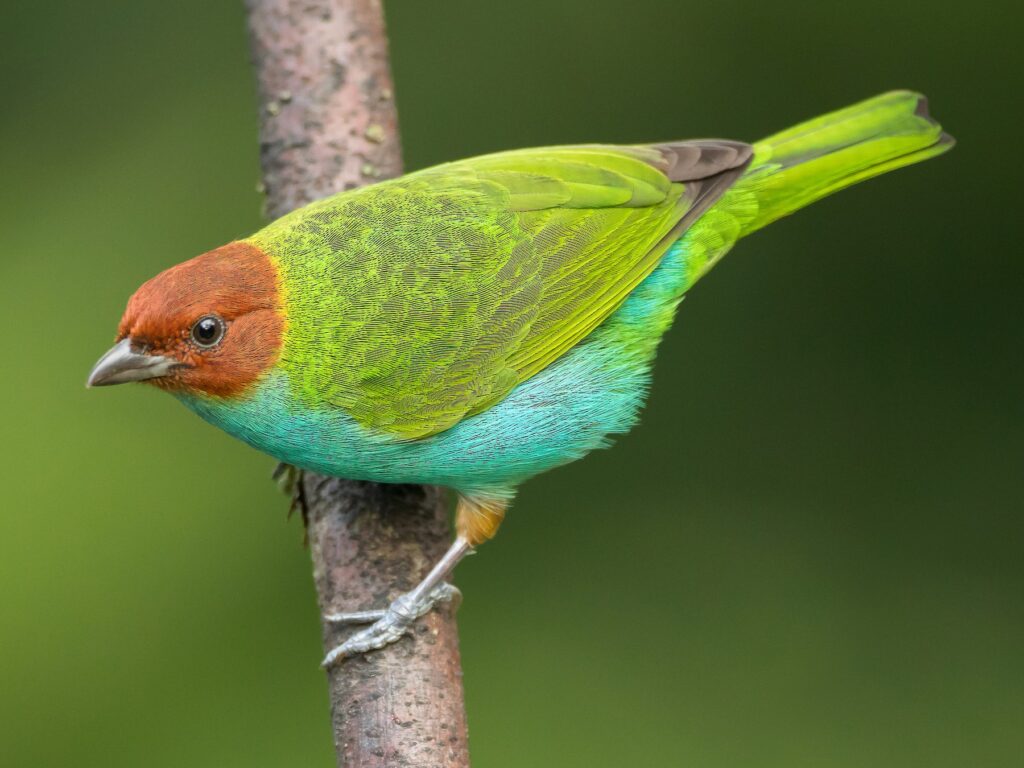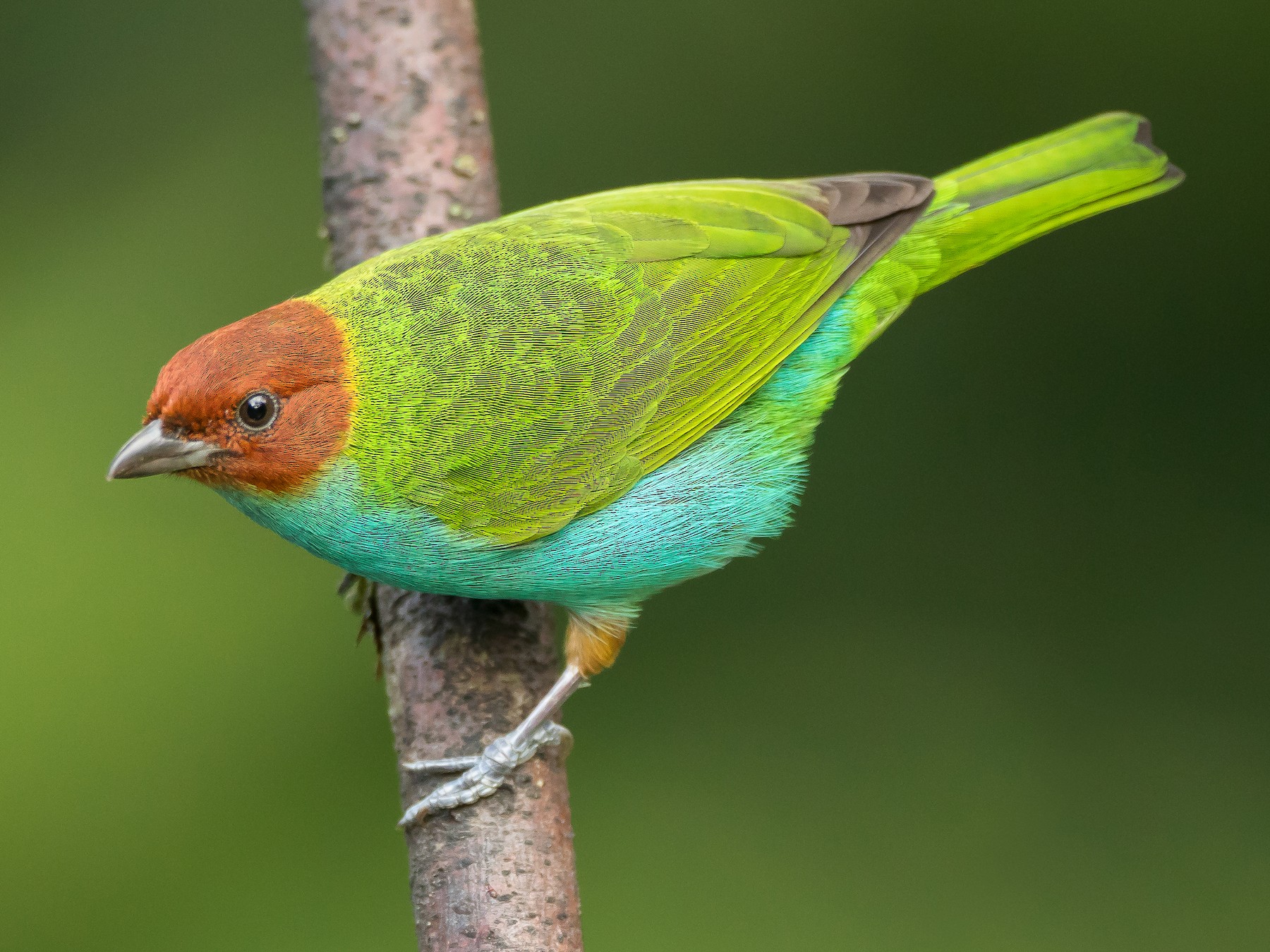ANIMAL: Bay-Headed Tanager Tangara gyrola Type of Animal: Songbird Habitat: Forest, forest borders, edges, clearings w/ scattered and/or large trees, semi-open areas Location(s): Ranges from far S Nicaragua to W Bolivia, also found in Trinidad Appearance: Green body, chestnut to bay-colored head, blue to green belly, thin gold collar on hind neck, younger birds have chestnut-flecked green heads, both sexes have similar coloration w/ female being slightly duller Food/Diet: Fruit, nectar, seeds, insects Status in Wild: Stable Conservation: Breeding in zoos, wildlife centers, & aviculture Lifestyle: Flocks of 2-10 birds Additional Info: Called: Male: Cock Female: Hen Young: Chick Group: Flock Weight: 0.74 oz Gestation: 2 weeks Life Span: 5-7 years Height: 5.5 in Body Length: 5.5 in Tail Length: 1.2 in Chicks fledge at 2 weeks but may stay w/ parents for longer. Nests are bulky cups built in trees. Females usually lay 2 eggs per clutch. Song is slow seee, seee, seee, tsou, tsooy. Often feeds w/ other songbird species. These birds have excellent eyesight. These birds are non-migratory. Males sing more than females. Females do more nest building but both sexes help build nest. Active during the day (diurnal). These birds sometimes occur in the private trade. Fun Fact(s): Tangara (genus name) is Tupi word for brightly colored bird. These birds are rather shy.

